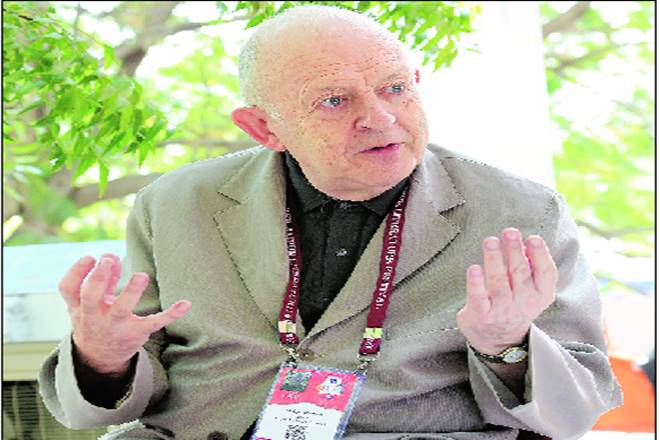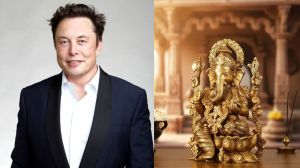Philip Norman is famous for his books on The Beatles, Rolling Stones, Elton John and Mick Jagger, to name a few, earning him the title of ‘rock biographer’. On the sidelines of the ongoing Jaipur Literature Festival, the American journalist and novelist tells Smitha Verma about the time he interviewed Indira Gandhi and wrote the first news story about Bollywood in America. Edited excerpts:
Why did it never occur to you to write about other famous people?
It’s funny that people have forgotten my earlier writings. Perhaps, it’s because they never made way into books, but only newspaper and magazine articles. I first came to India in my 20s as a journalist and did an interview with then prime minister Indira Gandhi. It appeared in The Sunday Times in London. I am also among the first few to interview Col Muammar Gadaffi. I have also written profiles of Elizabeth Taylor and PG Wodehouse. Since none of them were books, people don’t know much about them. I also wrote one of the first stories on Bollywood that appeared in the American press, for which I had interviewed stars like Dharmendra. But when I chose to write books, I thought, who would people like to read about most? The Beatles, of course.
Tell us more about the Indira Gandhi interview.
I met her thrice over a period of a few days. It was in the year 1973. I felt she was a very cold and hard person. But she was rather nice to me and she allowed me to interview her thrice. I met her twice in her office and once at home. She even allowed me to be around when she went to her garden where she met people daily.
How did Shout!, one of the most acclaimed bestsellers on The Beatles, happen?
When I was writing the book on the Beatles in 1978, I was sure that there were too many people writing on them and that there was no room for me. I had written a story on Apple Corps, the Beatles’ multimedia company, for an American magazine. It occurred to me then that everyone knows the story about Beatles, but there is still more to know. But those days, I was quite embarrassed to tell anyone that I was writing about the Beatles, as people laughed at me. Another book on Beatles, they would say. And just when my book was about to get published, John Lennon died. I had wanted Lennon to see my work before it got published. Suddenly, everyone realised that they were not going to see him any more. And it started a new Beatlemania, which continues till date.
What is the most crucial thing to keep in mind while writing a biography?
The main thing is to let your subject take centrestage. With music stars, writing can get boring because how much of pop charts, music tours and albums can you write about? I treat my characters like young men, they are like the heroes in epic novels, the way Charles Dickens or Fyodor Dostoyevsky wrote about men. I try to see what happens to these young men in a narrative that reads like a novel. Remember to keep your biases away. With someone like John Lennon, there will always be a bias in every word you write. I don’t try to curb my emotions, but I don’t let it get too personal.
You have written books on Paul McCartney, Mick Jagger, Buddy Holly, Elton John, etc. Why just pop stars?
It’s a very hard life. I wish it hadn’t picked me. After the Beatles, it was like I have done it. That’s it. No more pop stars. But I am like Michael Corleone in The Godfather. The way the mafia drags him back, pop stars drag me back. If I have done The Beatles, I had to do the Rolling Stones, because they are so connected. And if I have done Rolling Stones, then I have to do Buddy Holly, because he taught them how to play the guitar. And if Buddy Holly, then how could I leave Elton John? It’s like one huge epic story. I have just finished writing my book on Eric Clapton.
Which was the toughest book to write?
It was the John Lennon (John Lennon: The Life, published in 2008) book because it was done with the cooperation of his widow Yoko Ono. But later, she retracted in a rather horrible way and I still don’t know why. Thankfully, she didn’t come after the book in a legal way. The book Shout! wasn’t easy either. The world is full of Beatles experts, so it’s like the whole world is looking over your shoulder. I had this ambition that I will make every page look new. The idea that everyone is looking for you to make one mistake, one slip, is very hard to live with.
It’s been 50 years since The Beatles came to Rishikesh. What do The Beatles mean to India?
It was on George Harrison’s insistence that the band stayed a month at Maharishi Mahesh Yogi’s ashram in Rishikesh and went about exploring spirituality. Though the visit ended abruptly, the band’s break-up actually got delayed by their visit to Rishikesh. And what makes The Beatles so special is that even today we are sitting and discussing the band at a literature festival. The Beatlemania refuses to fade away!








